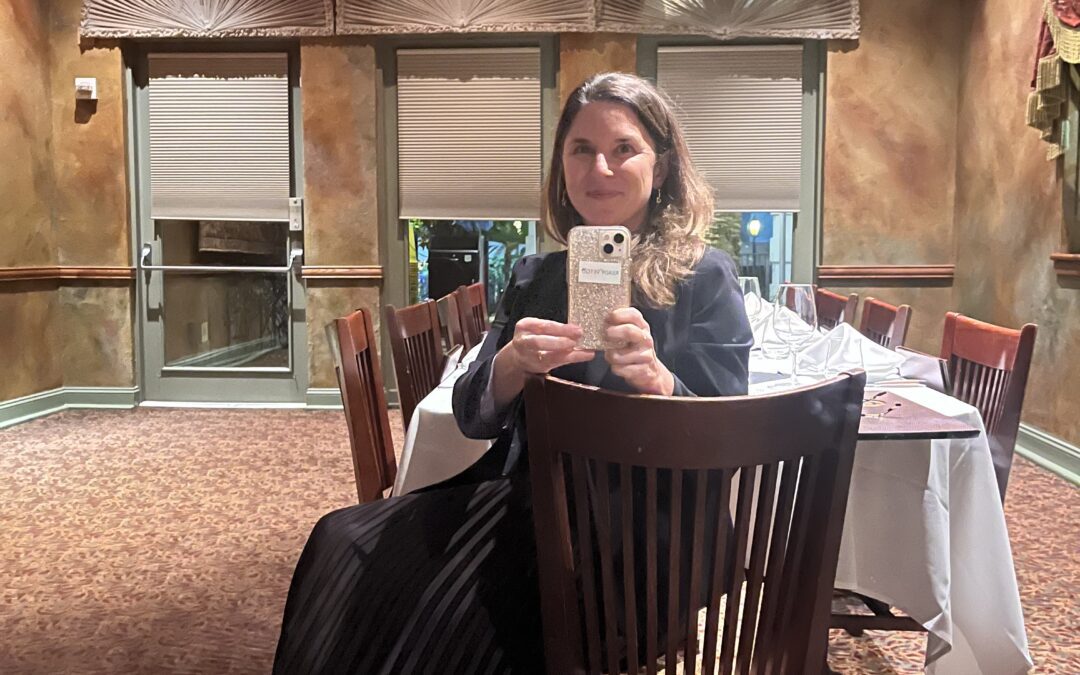I started the year off with a big move.
I invited 10 industry leaders to dinner—with me—to discuss how to improve mentorship in veterinary medicine. While I awaited their arrival, I snapped a selfie in one of the big dining room mirrors—after all, I was wearing a killer dress.
Fortunately, my reflection didn’t capture how I felt inside. Would these accomplished professionals laugh at my idealistic hopes for collaboration? Would they know who I was? Would anyone actually show up?
Little did I realize that what was about to happen—a deep and insightful sharing of knowledge—was also a powerful tool for overcoming the imposter syndrome that had overwhelmed me since I sent those dinner invitations.
The monster in the mirror: Imposter syndrome
Imposter syndrome is a behavioral phenomenon common among high-achieving professionals, especially those in the health industry. People with imposter syndrome don’t value their own expertise or achievements and generally fear being “exposed” as a fraud or fake. This sense of inadequacy drives them to work ever harder while avoiding opportunities they are afraid would compromise their reputation or legitimacy. This ultimately stifles growth and means talented professionals don’t reach their full potential.
Imposter syndrome is common in competitive environments such as veterinary school. The syndrome is therefore widespread among new and early career veterinarians, although anyone, at any career stage, can be affected, no matter their success.
The currency of curiosity: The value of shared knowledge
Imposter syndrome is often fueled by perfectionism and a self-imposed expectation of knowing all the answers. But, such a level of expertise is not only unrealistic—it’s also impossible. At any level in our veterinary careers, we are all teachers and students—never masters. For this reason, shared knowledge (i.e., tapping into someone else’s experience and wisdom to enhance our own) can help us let go of imposter syndrome, embrace curiosity, make valuable connections, and reach greater heights together.
Removing the mask: Conquering imposter syndrome through community
Networking is more than adding rungs to your professional ladder. A strong professional community can help you overcome imposter syndrome by acknowledging your achievements, fostering a sense of belonging, and supporting your efforts—including when you fall short. Connecting with established professionals can validate your struggles, because you’re learning from someone who has been in your place, and who may help you bypass certain challenges by learning from their mistakes.
It’s important to seek out and learn from your professional role models, but it’s equally important to solicit every level of expertise and insights. Remember, everyone has a unique perspective and knowledge base—the wider your net, the more well-rounded and multi-faceted your learning.
Finally, ensure your community includes those outside vet med, such as family, friends, or personal or spiritual advisors. They are essential for overcoming imposter syndrome, because their perspective is unbiased, they are not competing with you and, therefore, they can provide unconditional support and encouragement. If you’ve recently relocated and need help building a new circle of support, check out our previous post for tips on making connections and finding community.

